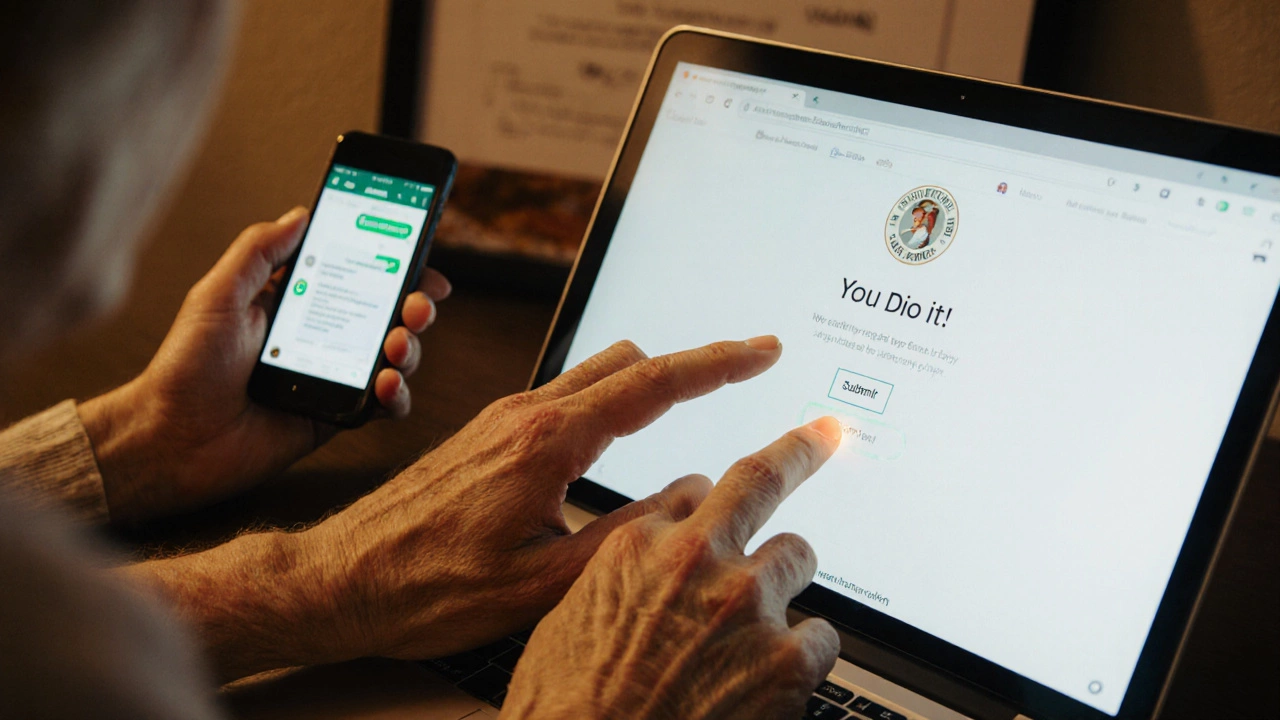When you return to learning as an adult-whether it’s to get a GED, learn a new skill, or switch careers-you’re not just picking up a textbook. You’re stepping into a world that expects you to act like a student again, but your life hasn’t stopped. You’ve got bills to pay, kids to drop off, shifts to work, and a brain that doesn’t absorb information the way it did at 18. So why do some adults stick with it, while others give up after one class? It’s not about motivation. It’s about whether their five core needs are being met.
Need 1: Relevance-Why This Matters to My Life Right Now
Adults don’t learn for the sake of learning. They need to see the direct link between what they’re studying and their real-life goals. If you’re taking a basic computer course because your job requires it, you’ll stay engaged. If you’re told you need to memorize Excel formulas because "it’s good for you," you’ll tune out.
A 2023 study by the Australian Institute for Teaching and School Leadership found that adult learners who could name a specific personal or professional outcome from a course were 68% more likely to complete it. That’s not a coincidence. Relevance isn’t just a nice-to-have-it’s the foundation. A single parent taking night classes in accounting doesn’t care about the history of double-entry bookkeeping. They care about how it will help them file their small business taxes correctly and avoid penalties.
Need 2: Autonomy-Control Over My Own Learning
Adults have spent years making decisions about their lives. They don’t respond well to rigid structures that treat them like children. When a course says, "You must attend every Tuesday at 6 PM," or "You can’t skip Module 3," it triggers resistance. Adults need choices: when to learn, how to learn, and what to focus on.
Online platforms like Coursera and TAFE Digital succeed because they let learners pause, rewind, and pick modules that match their current goals. Even in classroom settings, small freedoms make a difference. Letting learners choose between writing a report or recording a video to demonstrate understanding isn’t just flexible-it’s respectful. It says, "You know what works for you. We’re here to support that."
Need 3: Respect-Don’t Treat Me Like I’m Behind
Many adult learners carry shame. They didn’t finish high school. They failed a class before. They’re the oldest in the room. If an instructor says, "This is basic," or "You should already know this," it doesn’t motivate-it isolates.
Respect means acknowledging their life experience. A 45-year-old returning to study nursing has managed households, held down jobs, maybe raised kids alone. They’ve solved problems no textbook covers. Good adult education doesn’t ignore that-it builds on it. Instructors who ask, "How have you handled something like this before?" create connection. They turn learners from passive recipients into active contributors.

Need 4: Immediate Application-Let Me Use This Now
Adults don’t learn for future payoffs. They learn to fix something today. Waiting until next semester to use what you’ve learned kills momentum.
Think about someone learning basic digital skills to apply for jobs online. If they spend three weeks on theory before ever creating a resume, they’ll quit. But if they spend the first hour learning how to format a CV in Word and then save and email it to themselves? That’s a win. That’s proof they’re capable. That’s what keeps them coming back.
Programs that embed real-world tasks into every lesson-like writing an email to a landlord, calculating a grocery budget, or filling out a Medicare form-see higher completion rates. Application isn’t the final step. It’s the first.
Need 5: Community-I’m Not Alone in This
Learning as an adult can feel lonely. You’re juggling family, work, and study, and no one around you gets it. Your partner thinks you’re "just taking a class." Your kids don’t understand why you’re studying at the kitchen table at 10 PM.
That’s why peer support matters more than you think. Study groups, online forums, or even just a coffee chat with another learner can be the difference between quitting and graduating. A 2024 survey by the Centre for Adult Education in Melbourne found that 72% of adult learners who completed a course had formed at least one meaningful connection with another student.
You don’t need a big social network. You just need one person who says, "I get it." That’s enough to keep you going on the hard days.
What Happens When These Needs Are Ignored
Too many adult education programs are built for 18-year-olds in a dorm room. They assume long attention spans, free time, and zero life responsibilities. When that’s the model, failure isn’t the learner’s fault-it’s the system’s.
Think about a government-funded literacy program that only runs during business hours. It excludes single parents, shift workers, and caregivers. Or a vocational course that requires a laptop and high-speed internet but doesn’t offer loaner devices. These aren’t small oversights. They’re barriers built into the design.
When relevance, autonomy, respect, application, and community are ignored, dropout rates climb. And the people who drop out aren’t lazy. They’re exhausted-by systems that don’t see them as whole people.

How to Find or Build a Program That Meets These Needs
If you’re choosing a course, ask these five questions:
- Can I choose how I’m assessed? (e.g., project, presentation, test)
- Can I start anytime, or is there a rigid schedule?
- Will I learn something I can use in the next week?
- Do instructors acknowledge life experience as part of learning?
- Is there a way to connect with other learners?
If you’re designing a program-whether you’re a teacher, nonprofit worker, or employer-start here: map every activity back to one of these five needs. If it doesn’t serve at least one, cut it.
Real Example: Maria’s Story
Maria, 51, from Adelaide, left school at 16. She worked in retail for 30 years. When her store closed, she needed to retrain. She enrolled in a TAFE digital skills course. At first, she didn’t show up for two weeks. She felt out of place.
Then the instructor changed things. He let students pick their project. Maria chose to build a simple website for her daughter’s small bakery. She learned HTML, uploaded photos, linked payment options-all in two weeks. She didn’t just learn tech. She built something real. She joined a WhatsApp group with two other students. They shared tips, vented about deadlines, celebrated wins.
She finished the course. Got certified. Now she helps other women over 45 learn digital skills. She didn’t just learn a skill. She found her purpose.
Final Thought: Adult Learning Isn’t About Catching Up
It’s about moving forward-on your terms. The five needs aren’t just educational theory. They’re human needs. Adults don’t need to be fixed. They need to be seen. Supported. Given space. And when they are, they don’t just learn. They thrive.
What are the five adult learning needs?
The five adult learning needs are: relevance (why this matters to my life), autonomy (control over how and when I learn), respect (acknowledging my experience), immediate application (using what I learn right away), and community (feeling connected to others on the same journey).
Why do adults quit learning programs?
Adults often quit because programs don’t meet their core needs. If the material feels irrelevant, the schedule is inflexible, instructors don’t respect their life experience, they can’t apply what they learn, or they feel isolated, they’ll disengage. It’s rarely about lack of ability-it’s about mismatched design.
Can adult learning help with career changes?
Yes, and it’s one of the most common reasons adults return to learning. Whether it’s moving from retail to healthcare, from manual labor to IT, or starting a small business, adult education provides the skills and credentials needed. Programs that focus on real-world tasks and offer job placement support see the highest success rates.
Do I need to be tech-savvy to learn as an adult?
No. Many adult learners start with little to no tech experience. The best programs teach tech skills in context-like how to email a teacher, submit an assignment online, or use a learning platform. You don’t need to be an expert. You just need someone to show you the first step.
How can I find adult learning programs near me in Australia?
Start with your local TAFE, community centre, or adult education provider. Many offer free or low-cost courses in literacy, digital skills, and vocational training. You can also check the Australian Government’s Skills and Training website or call the National Careers Service. Look for programs that mention flexible hours, practical tasks, and peer support-those are signs they understand adult needs.

